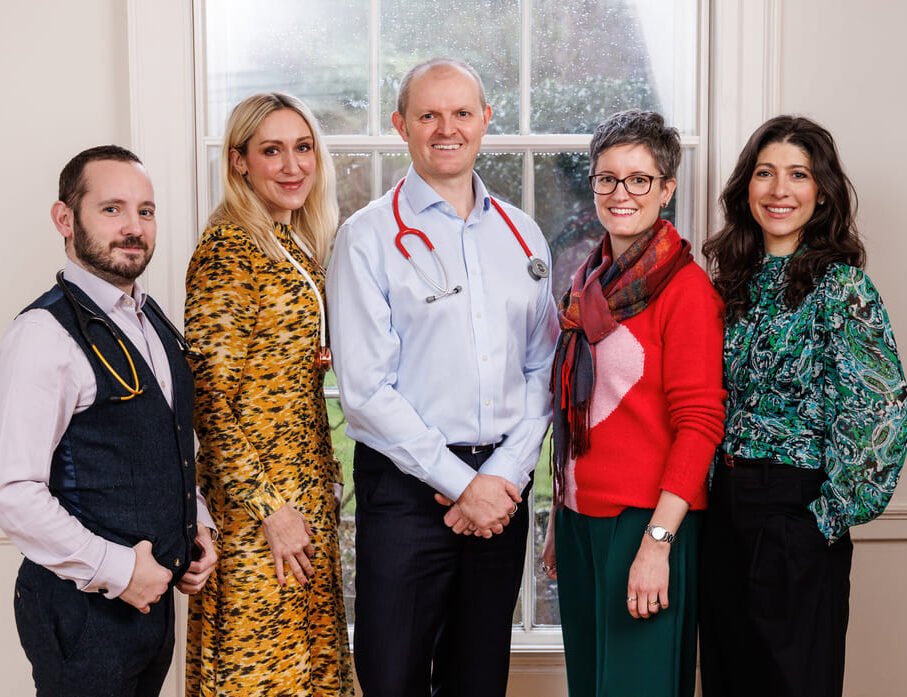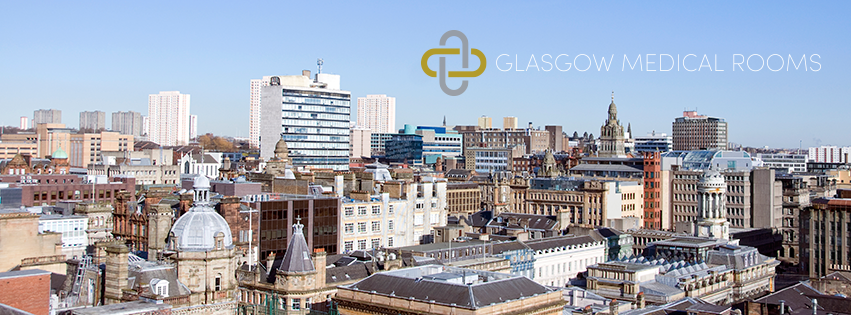Anxiety: Symptoms, Causes & Treatments
Anxiety can affect the lives of most of us and impact our mental wellbeing. What are the common symptoms of anxiety, how can anxiety disorder arise, and when should you consult with a doctor?
6 minute readAnxiety is a feeling most of us experience from time to time; from the butterflies on a first date, and the dry mouth during a job interview, to the sleepless night before an important exam. Temporary anxiety is a natural reaction to a stressful situation or problem, and normally nothing to worry about.
But if you feel anxious all the time, your anxiety stops you from participating in certain activities, or doesn’t have an obvious cause, you may have a condition called anxiety disorder.
What is anxiety disorder?
Anxiety disorder is a mental health condition where you feel excessive anxiety or fear in response to certain situations. The anxiety may be constant, get worse over time, and affect your ability to carry out day-to-day tasks and activities.
There are several types of anxiety disorder.
Generalised anxiety disorder (GAD)
Generalised anxiety disorder is a common condition that causes long-term anxiety about normal life events like work, school, relationships, health, and money. We all worry about those things from time to time, but with GAD, the worry can be excessive and constant.
Social anxiety disorder (Social phobia)
This type of anxiety disorder causes fear or anxiety in relation to social situations. Some anxiety in social situations is normal on occasion, but someone with social anxiety disorder may feel anxious before, during, and after social events. People with social anxiety disorder often feel that others are judging them harshly and may be embarrassed by their own behaviour or actions. In severe cases, people with social anxiety disorder may avoid social situations completely.
Separation anxiety disorder
Separation anxiety is a normal phase of development that normally occurs between 6 and 12 months of age and starts to resolve at around 3 years of age.
Separation anxiety disorder is when separation anxiety continues into childhood, or even adolescence. It is a common condition in children but can also occur in adults. People with separation anxiety disorder feel extreme anxiety and worry when they are separated from their loved ones. They may worry obsessively about something bad happening to their children, parents, or partner and dread being away from them.
Panic disorder
People with panic disorder experience frequent panic attacks on a regular basis. A panic attack can come on without warning and for no apparent reason.
Panic attacks may include physical and mental symptoms, such as:
A feeling of intense fear or dread
Thinking you are going to die
Fast heart rate
Chest pain
Shortness of breath
Sweating
Dizziness
Feeling faint
Nausea (feeling sick)
Trembling or shaking
Numbness or pins and needles in your fingers
Dry mouth
A feeling of being disconnected from reality
Though distressing, panic attacks are not dangerous, and treatment is available to reduce the number of panic attacks you have, and help you manage your symptoms during an attack.
Phobias
A phobia is overwhelming fear and panic in response to a situation, object, feeling, place, or animal. There are 2 types of phobia: simple (specific) phobias, and complex phobias.
Simple (specific) phobias develop in response to a certain object, animal, activity, or situation.
Common simple phobias include:
Environmental phobias like fear of heights, enclosed spaces, or germs
Situational phobias like going to the doctor, or dentist, or flying
Animal phobias such as spiders, snakes, or rats
Bodily phobias like having an injection, blood, or vomit
Sexual phobias including anxiety about sexual performance, or catching an STI
Complex phobias involve severe anxiety about a particular situation. They usually develop in adulthood and tend to have a more significant and disabling impact on your life than simple phobias.
Complex phobias include:
Agoraphobia
Social phobia
Post-traumatic stress disorder (PTSD)
Post-traumatic stress disorder may occur after being involved in, or witnessing a traumatic event such as a car accident, violent attack, or natural disaster.
Symptoms of PTSD may include:
Nightmares
Intrusive thoughts
Anxiety
Irritability
Aggression
Difficulty concentrating
Difficulty sleeping (insomnia)
What are the symptoms of anxiety disorder?
Symptoms of anxiety disorder are different for everyone. You may have all, some, or different symptoms than those listed below.
Symptoms of anxiety disorder often include physical and mental symptoms.
Physical symptoms of anxiety disorder
Physical symptoms may include:
A fast, strong, or irregular heartbeat
Feeling lightheaded or dizzy
A churning feeling in your stomach
Nausea (feeling sick)
Pins and needles
Sweating
Weakness
Fatigue (extreme tiredness)
Fast breathing (hyperventilation)
Mental symptoms of anxiety disorder
Mental symptoms may include:
Feeling restless, nervous, or tense
A sense of dread, or that something bad is about to happen
Difficulty concentrating
Worrying excessively
Trying to avoid things, or situations that trigger anxiety
What causes anxiety disorder?
Exactly what causes anxiety disorders is unknown, but they are probably caused by a combination of factors.
These may include:
Genetics
A family history of anxiety disorders
Personality type
Past traumatic experiences
Having other mental health conditions such as depression
Medical conditions like diabetes, thyroid disorders, heart disease, and conditions that cause chronic (long-term) pain
A side effect of some medications
Drug or alcohol abuse
When should I see a doctor about anxiety?
See a doctor if:
Your symptoms are causing you distress
Your anxiety is impacting your quality of life
You find it difficult to take part in everyday activities
Your performance at work or school is affected
You have thoughts of hurting yourself
How is anxiety disorder treated?
Treatment for anxiety disorder, includes lifestyle changes, self-help techniques, support groups, medications, and therapy.
Lifestyle changes
Some lifestyle changes you can make to help with symptoms of anxiety disorder include:
Take regular exercise
Spend time outside
Stop smoking or vaping
Eat a healthy, balanced diet such as the Mediterranean diet
Avoid caffeine and alcohol
Self-help for anxiety disorder
Your GP may recommend some self-help techniques to help you manage your anxiety. These may include:
Relaxation techniques such as meditation, visualisation techniques, breathing techniques, yoga, contrast therapy or Pilates
Reading self-help books on coping with anxiety (your GP or counsellor can recommend one)
Joining a local or online support group
Medications
In some cases, your GP may prescribe medication to help you manage symptoms of anxiety.
These may include:
Antidepressants like selective serotonin reuptake inhibitors (SSRIs), or tricyclic antidepressants work by increasing chemicals in the brain that regulate mood and emotion. Antidepressants can take between 2 and 4 weeks to work, so keep taking them even if you feel they are not helping.
Pregabalin stops your brain from releasing chemicals that make you feel anxious. It may be prescribed if antidepressants are not suitable for you.
Benzodiazepines work by increasing the levels of gamma-aminobutyric acid (GABA) in the brain, which has a calming effect and helps to relieve anxiety. They should only be prescribed short term as they can become habit-forming (addictive).
Beta blockers are normally used to treat heart problems, but can also treat symptoms of anxiety, such as a fast heart rate.
Therapy
There are various types of therapy that can be used to treat anxiety disorder:
Cognitive behavioural therapy (CBT) - a type of talking therapy that is used to treat a wide range of mental health conditions, including anxiety disorders. It aims to change the way you think and behave. Further, it teaches techniques for coping with your problems.
Systematic desensitisation (exposure) therapy - may include systematic desensitisation therapy. This is a technique where your therapist works with you to gradually expose you to the source of your phobia in a controlled environment.
Further treatment - if lifestyle changes, self-help techniques, medication, and CBT aren’t effective, your GP may refer you to a specialist for further help and support.
Anxiety: A Summary
Anxiety disorders are common mental health conditions that can have a significant impact on your relationships, social life, ability to carry out day-to-day activities, and overall wellbeing.
Many people try to cope with the symptoms of anxiety disorder alone because of embarrassment, a perceived stigma about their condition, or a belief that their symptoms can’t be helped.
In reality, a range of treatments are available to help relieve symptoms of anxiety disorder, teach you skills to cope with your condition and restore your quality of life.
If you have symptoms of anxiety disorder, there’s no need to suffer alone. Reach out to your GP or healthcare provider today.








